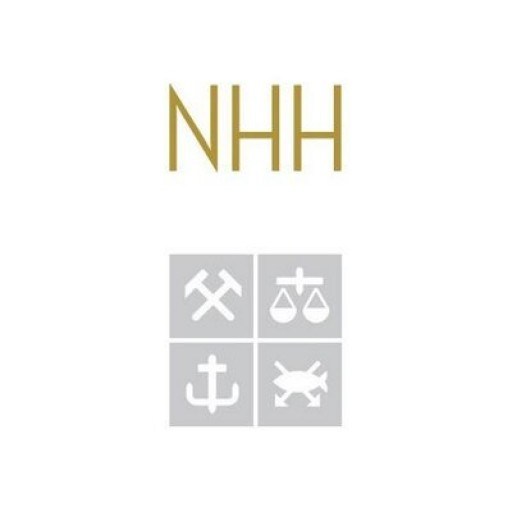Photos of university / #nhh_no
The Master's in Finance at the Norwegian School of Economics (NHH) offers a comprehensive and rigorous education designed to prepare students for a successful career in the dynamic world of finance. This program combines theoretical foundations with practical applications, equipping graduates with the skills necessary to analyze, interpret, and manage financial data and risks in various organizational contexts. Students will explore a broad range of topics including investment analysis, corporate finance, financial markets, and risk management, all taught by leading experts in the field. The curriculum emphasizes rigorous quantitative methods, critical thinking, and strategic decision-making, ensuring students develop a deep understanding of financial principles and practices.
During the program, students have the opportunity to engage in real-world projects, case studies, and internships that foster hands-on learning and industry connections. The program also encourages international perspectives through elective courses and exchange opportunities with partner universities worldwide. Graduates will be well-equipped to pursue careers in investment banking, asset management, financial consulting, corporate finance departments, and financial regulation agencies. The Master's in Finance at NHH aims to develop not only technical expertise but also ethical and sustainable considerations in financial decision-making, aligning with the evolving demands of global markets.
With a strong network of alumni and industry partners, students gain valuable insights and guidance to transition smoothly into the professional environment. The program’s balanced approach of theory and practice ensures that graduates are analytical, adaptable, and innovative, ready to contribute to the financial industry’s advancement. The NHH Master's in Finance is ideal for those seeking a challenging and rewarding education in a highly respected institution recognized for its academic excellence and close ties to the Nordic and international financial sectors.
The Master of Science in Finance at the Norwegian School of Economics (NHH) offers a comprehensive and rigorous education designed to prepare students for successful careers in the financial sector. The programme combines advanced theoretical knowledge with practical skills, equipping students to analyze complex financial problems and make informed decisions in diverse organizational contexts. Throughout the programme, students engage with a wide range of topics including corporate finance, investment analysis, financial markets, risk management, and financial modeling. The curriculum emphasizes analytical thinking, quantitative methods, and critical reasoning, ensuring graduates are well-equipped to meet the demands of the evolving financial industry.
Students will explore key concepts such as valuation of assets, financial strategies, and the functioning of financial institutions. The programme also offers specialized courses that delve into areas like behavioral finance, sustainable finance, and fintech innovations, reflecting current trends and future developments in the field. Practical skills are cultivated through case studies, group projects, and simulations that mimic real-world financial decision-making processes. The degree is structured to foster both individual expertise and teamwork, with opportunities for students to collaborate across disciplines and develop their communication skills.
Furthermore, the programme places a strong emphasis on ethical considerations and corporate social responsibility, encouraging students to think critically about the societal impacts of financial decisions. The academic environment at NHH is characterized by close interaction with faculty members who are active researchers in finance, providing students with insights into cutting-edge developments and industry challenges. Students also benefit from the school’s strong ties to the finance industry through guest lectures, internships, and networking events.
Graduates of the MSc in Finance from NHH are prepared for diverse roles within investment banking, asset management, consulting, corporate finance, and financial analysis. They are equipped with both the technical expertise and strategic insight necessary to excel in complex financial environments. With a solid foundation in quantitative methods and a global perspective, students are well-positioned to contribute effectively to organizations worldwide. Overall, the programme aims to develop financial professionals who are analytical, innovative, and responsible, ready to navigate and influence the future of finance.
The Financing specialization within the Master’s in Business and Economics at the Norwegian School of Economics offers students a comprehensive understanding of financial management, investment analysis, and financial markets. The program equips students with the skills necessary to analyze financial data, assess risk, and make informed financial decisions in a variety of professional settings. The curriculum emphasizes quantitative methods, financial theory, and practical applications, preparing students for careers in finance, banking, asset management, and corporate finance. Students engage with courses covering corporate finance, financial trading, valuation techniques, and financial regulations, providing a solid foundation in the financial industry. The program also includes opportunities for internships and collaboration with industry partners, facilitating practical experience and professional networking. The university provides financial aid options such as scholarships and loans to support enrolled students. For international students, scholarships may be available based on merit or need, and there are often specific grants aimed at promoting diversity and supporting study costs. Additionally, students can explore part-time work opportunities within the university or in the local Oslo area to supplement their income during their studies. The university’s career services actively assist students in finding relevant employment post-graduation, which is crucial for financing their education and easing the transition into the workforce. The program’s focus on practical skills and industry relevance enhances employability, potentially leading to higher starting salaries and better career prospects, ultimately contributing to the financial sustainability of graduates. The cost of tuition varies depending on the student’s nationality, with tuition fees for non-EU/EEA students generally higher than for Norwegian or EU/EEA students. In addition to tuition fees, students should budget for living expenses, insurance, and study materials, which are necessary to maintain a comfortable student life. Students are encouraged to plan their finances carefully and seek available financial assistance to ensure smooth progress through their studies. By combining theoretical knowledge with practical application and support mechanisms, the Financing program at the Norwegian School of Economics aims to prepare students for successful careers while providing various means of financial support to help them achieve their educational goals.
The Bachelor's degree in Finance at the Norwegian School of Economics (NHH) provides students with a comprehensive understanding of financial principles, markets, and instruments. The program is designed to equip students with the analytical skills needed to make informed financial decisions in a dynamic global economy. Throughout the three-year course, students explore core areas such as corporate finance, investment analysis, financial markets, risk management, and international finance. The curriculum combines theoretical foundations with practical applications, often utilizing case studies, financial modeling, and data analysis to prepare students for real-world challenges.
Students enrolled in the Finance program benefit from a rigorous academic environment, access to state-of-the-art financial laboratories, and opportunities for internships with leading financial institutions. The program emphasizes quantitative skills, including mathematics, statistics, and computer-based financial analysis, to ensure graduates can interpret complex financial data effectively. English-taught courses enable international students to engage fully with the curriculum, fostering a diverse learning community.
Throughout the degree, students are encouraged to develop critical thinking, problem-solving capabilities, and ethical considerations relevant to finance and business practices. The program also supports student exchange partnerships with universities across Europe and beyond, providing international exposure and networking opportunities. Upon graduation, students are well-positioned for careers in banking, investment management, consulting, corporate finance, and other sectors requiring financial expertise. The Norwegian School of Economics’s strong reputation and extensive alumni network offer valuable career pathways and continued professional development.










